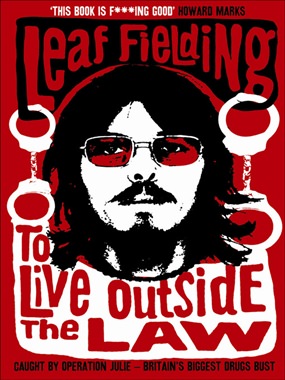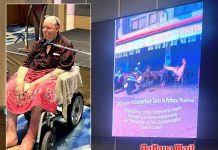I was attracted to this week’s review book by a remark on the front cover attributed to famous drug smuggler Howard Marks, whose book Mr. Nice (ISBN 978-0-749-39569-8, Vintage UK, 1997) was one of the most fascinating books I had read. With the recommendation from “Mr. Nice”, I chose Leaf Fielding’s To Live Outside the Law (ISBN 978-1-84668-797-6, Serpent’s Tail publishing, 2012) and eagerly began reading.
In essence, this book has been written by Fielding as a first person account of someone involved in the production and selling of LSD and subsequently being found guilty and sentenced to an eight year prison sentence.

(For those with an interest in LSD, the psychedelic drug/entheogen was first synthesized by the Swiss chemist Albert Hofmann in the Sandoz (now Novartis) laboratories in Basel, Switzerland on November 16, 1938; however, the psychedelic properties were not discovered until 1943.
As interest in this increased, a more radical group, spearheaded by Dr. Timothy Leary, felt that LSD had the power to revolutionize society and that it should be spread as widely as possible and be available to all.
The people associated with this subculture included Dr. Leary and psychedelic rock musicians such as the Grateful Dead, Jimi Hendrix, Pink Floyd, Jefferson Airplane and The Beatles soon attracted a great deal of publicity, generating further interest in LSD.)
Leaf Fielding’s involvement began in the 1970’s and finally led to his capture by the police in a well orchestrated move in 1977, called Operation Julie, which netted hundreds of the dabblers in LSD, as well as the hard core producers of the drug. The first name of one of the officers, Police Sergeant Julie Taylor, was used as the operation’s code name.
Fielding depicts himself as a young man whose mother was killed and whose father was never home, having overseas placements with the British Army. When his father did eventually return, he was accompanied by a woman who became his stepmother, and with whom he did not get on.
He writes his story with alternating chapters showing his pre-prison experiences as a ‘drop out’ and then life in the nick. His wanderings through SE Asia were typical of the hippie culture and drugs were an integral part of this, mainly for personal consumption. However, it became obvious that to fuel the personal use, selling some on the side was the answer. Fielding became one of these suppliers and finally became part of the LSD production and distribution network. He writes of himself as, “I can hardly believe how consistently, stupidly reckless I was in my youth. And yet, at the time, I always felt I knew what I was doing.” That should ring a bell with anyone over the age of 24!
The transition from incarcerated convict to life outside is well covered, and for me, one of the more interesting parts of the book.
At B. 495, this is probably a little steep for a book that tends to be repetitive, either being a flashback to his pre-capture times as a wandering hippy, alternating with life in prison. Interesting, but not riveting.




